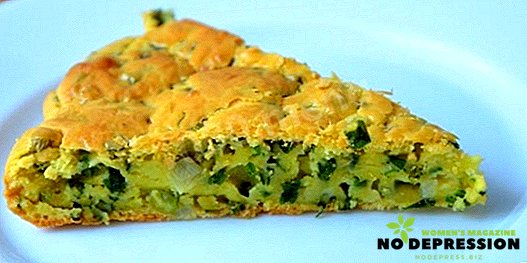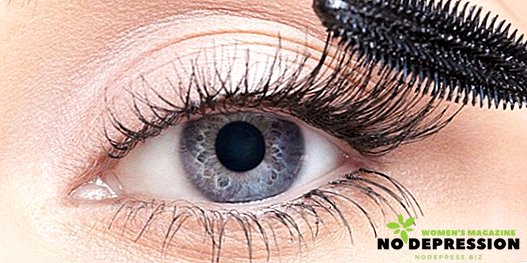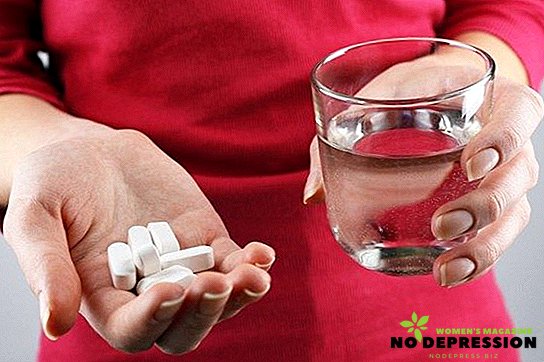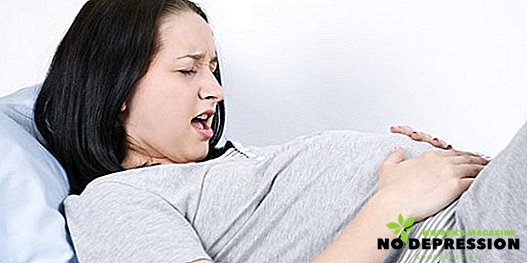The 21st week of carrying a child has arrived, which means that half of the term has safely passed. The state of health of the future mother on such a period is in most cases good, her hair, skin and nails are in excellent condition.
The child has already grown up and interesting changes have occurred in his body. The main danger during this period may be a lack of calcium, so a woman should watch her diet.

What's going on inside with the baby
By this time, the child has already fully formed skin, but it is still covered with folds. As it grows, the skin will stretch and even out. Its color is slightly reddish, but it is already beginning to approach the natural one, due to the increase in the amount of fatty tissue.
The size of the fetus gradually increases, the body becomes round. In the gums formed the beginnings of teeth, and on the face - eyebrows and eyelashes. Appeared ability to blink.
All internal organs are almost ready for life outside the mother's body, but their work is not yet harmonious. There have been such changes:
- The endocrine system is fully formed. The development of the pancreas, adrenal glands, thyroid, pituitary, and sex glands has been completed;
- The spleen proceeded to fulfill its purpose;
- The central nervous system is already more developed. There is a clear distinction between sleep and wakefulness;
- The digestive system works effectively. The child drinks the amniotic fluid, and the stomach processes them, releasing nutrients, everything else goes into the rectum and forms meconium (original feces);
- The tongue is already equipped with taste buds, so the baby feels the taste of amniotic fluid. If the mother eats a banana, then it is likely that the child will taste it.
- The circulatory system produces the first white blood cells that will protect the body of the fetus from bacteria and viruses;
- First hair appears on the head.

At this stage of pregnancy, the mother should monitor the movements of the child. If he is not too active, then worry is not worth it. But an increase in movement indicates that the baby lacks oxygen.
Changes in the body of the future mother
Changes also occur to the mother’s body and body:
- The first stretch marks may appear due to an increase in the size of the abdomen and a quick weight gain. To make them smaller, you need to moisturize the skin after each shower. It is impossible to completely avoid stretch marks, but if you control weight gain, you can reduce their number;
- appetite increases as the baby needs more calories. Too much to eat should not be. You need to eat enough food so as not to feel hunger. Overeating can negatively affect well-being and weight gain. Food must contain all the necessary nutrients;
- the size of the uterus is rapidly increasing, due to which the intestine is compressed and swelling occurs. To reduce the manifestation of flatulence should eat less cabbage, black bread, asparagus and other foods that affect the intestines in this way;
- blood volume increases, which creates an additional load on the vessels. There is a high risk of developing varicose veins. What to prevent the problem should be more rest and wear special compression stockings;
- moving the center of gravity increases the load on the back. There may be pain in the spine. It will not be superfluous to visit a massage therapist or go swimming;
- the acceleration of blood circulation and the increase in the level of hormones leads to the fact that nails and hair begin to grow rapidly;
- discharge must be transparent with a sour smell. If their character has changed, then it is necessary to visit a gynecologist, since thrush can worsen during this period.
A woman should closely monitor the state of her health, and with the slightest deviations contact a doctor.
Analyzes and screening
With a safe course of pregnancy, a lot of tests are not prescribed for woman at week 21. Before the planned visit to the gynecologist, the woman should pass a urine test to monitor the condition of the kidneys. On examination, the gynecologist will check:
- Pressure in the arteries;
- The volume of the abdomen and the height of the bottom of the uterus;
- The body weight of the future mother.
The bottom of the uterus at this time will be about 21 cm high. But, if it is several centimeters more or less, this is not considered a deviation. In the absence of changes in the growth of the uterus should be examined. Up to 21 weeks, a woman most often recovers by 5 kg.

At this period, appoint a second planned ultrasound. In this study, determine:
- fetal size from coccyx to vertex;
- head circumference and thigh length;
- height and weight of the child;
- previa fetus. If his position is wrong, then there is no need to worry, because before the birth he will still have time to roll over;
- assess the condition of the placenta. She must have a zero degree of maturity;
- check the amount of amniotic fluid;
- determine the heartbeat. If the heart beats too often, it means that the child does not have enough oxygen.
Parents can get a photo of the child with ultrasound.
What dangers lurk on this term
The risk of miscarriage at 21, 22 weeks of pregnancy has decreased, but you need to monitor your condition. If there are nagging, cramping pains in the lower abdomen, the uterus tone may have increased.
This condition is characterized by the presence of surrounding pain. It starts in the lower abdomen and continues in the lower back.
Disregard such violations can not, because they can lead to premature birth. Therefore, when these symptoms appear, you should immediately go to the doctor.
Among other dangers of this period:
- Exacerbation of thrush. Discharge at week 21 should be clear and fluid, leaving no residue on clothing. If they become thick, there is an unpleasant smell, you need to check the vaginal microflora. The presence of bloody marks may indicate hemorrhoids. If there is bleeding from the vagina, an ambulance should be called in urgently;

- Calcium deficiency. The body of the child during this period, especially in need of calcium, since it forms the bone system. Therefore, if his mother’s body is not enough, his teeth will start to fall out, convulsions will appear, and the bones of the child will not be strong enough;
- Binge eating. If a woman eats a lot and gains much more weight than she should, it can lead to postpartum obesity and the development of metabolic disorders;
- Baby's tendency to obesity. If the mother will constantly overeat, then the child will have an increased tendency to obesity. During this period, fat cells are actively dividing. Excessive amounts of them can lead to fat deposits in the future;
- Edema. This problem often worries women at this time. If the swelling has increased, you must visit a doctor. To improve the condition, it is recommended to rest more, to choose the right shoes, and to change the diet.
A woman must follow the doctor's instructions to avoid complications.
Doctor's recommendations
Expectant mothers in week 21 need to follow these tips:
- Bend over and squat so as not to squeeze the belly;
- You should not walk alone, as it can feel dizzy and there should be a person who podstrakhuet;
- The diet should be more high-calorie. It should be dominated by meat, fish, vegetables, fruits, dairy products. It is better to eat often in small portions in order not to overeat and not gain more weight than you need. It is better to refuse spicy and salty foods, as it only increases the appetite;
- If with the help of nutrition it is impossible to provide the body with necessary substances, then you can take special vitamin complexes for pregnant women. In most cases, recommended iron supplements, folic acid, calcium and vitamin D;
- If there is no threat of miscarriage and placenta previa, then you cannot deny yourself intimate life. Moreover, that the sexual desire in pregnant women is significantly increased, under the influence of hormones;
- Physical activity should be moderate.
To improve well-being you can do gymnastic exercises.

Conclusion
- In the 21st week of pregnancy, the baby looks quite like a child, organs and systems are actively forming;
- A woman is gaining weight quickly, so she must follow the diet;
- In addition to ultrasound and urinalysis, at this time other procedures may not be prescribed;
- Calcium deficiency can adversely affect the formation of the fetal bone system;
- The future mother needs to walk more, eat moderately, take multivitamin complexes if necessary.
About what happens to the baby and mother in the 21st week of pregnancy, you can also learn from this video.













